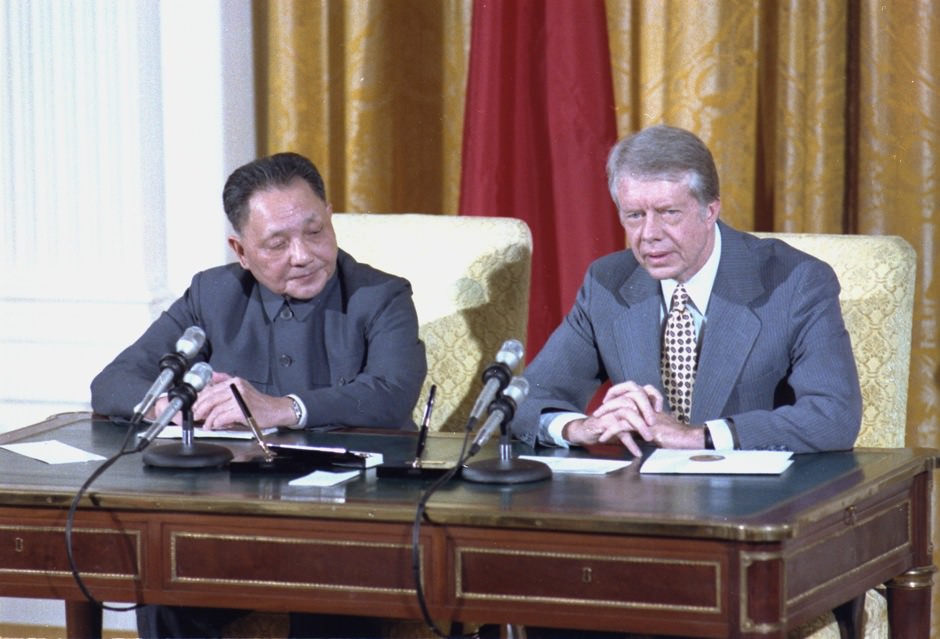“Today we take another step in the historic normalization of relations which we have begun this year,” US President Jimmy Carter said in 1979, welcoming China’s leader Deng Xiaoping at a state dinner in the White House. “We share in the hope which springs from reconciliation and the anticipation of a common journey…. Let us pledge together that both the United States and China will exhibit the understanding, patience, and persistence which will be needed in order for our new relationship to survive.”
Earlier this year, Orville Schell joined Carter on a visit to China, where he received a less warm welcome from China’s current leaders. In his article “China Strikes Back,” published in The New York Review’s October 23 issue, Schell writes:
Watching this former US president treated so offhandedly highlighted how the power relationship between the two countries is shifting: it is now not only the West that has wealth. Indeed, China is expected to soon surpass the US in GDP. But there were numerous other ways in which this tectonic shift in US–China relations revealed itself.
In the following video produced by VICE News, Schell discusses the significance of the diplomatic slight against Carter, and how the US might benefit from better understanding the “China Dream.”



